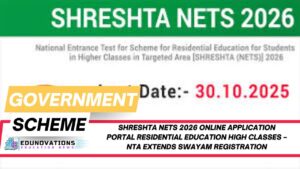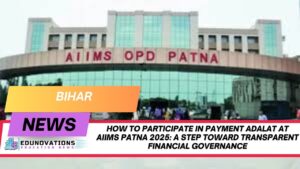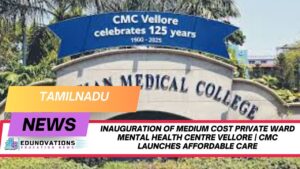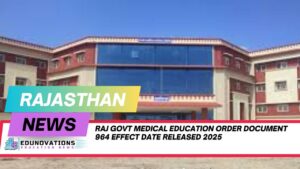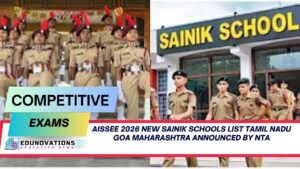Over 81 000 students applied under the Right to Education Act 25% quota in Tamil Nadu for 2025-26. Learn how the RTE process works, important dates, and expert insights.
A surge in applications marks Tamil Nadu’s push for inclusive education
For the academic year 2025-26, the Tamil Nadu RTE admissions 2025-26: 81 000+ applications for 25% quota highlight a growing awareness among parents about the benefits of the Right to Education (RTE) Act. According to official data from the School Education Department, a total of 81 927 applications were received for entry-level admissions in LKG and Class I across the state.
Out of the 7,717 schools registered under the RTE quota, 81 927 students applied for LKG seats and 89 students for Class I, under the 25 percent reservation mandated by the RTE Act 2009. Principal Secretary for School Education, B. Chandra Mohan, stated that the admission process is being conducted with complete transparency through a mix of direct selection and draw-of-lots.
Understanding the RTE Act 2009 and its impact in Tamil Nadu
The Right of Children to Free and Compulsory Education Act, 2009, ensures that children from economically weaker sections and disadvantaged groups can access quality education in private schools through a 25 percent reserved quota. Tamil Nadu has consistently been among the states implementing the RTE provisions most effectively.
Every year, thousands of families apply online for the RTE quota private schools Tamil Nadu application vs seats 2025 report, with applications processed through the state EMIS portal. The portal not only ensures accountability but also enables parents to track the status of their children’s admissions digitally.
To explore additional academic support for students enrolled under RTE or other government initiatives, readers can visit internal resources such as NCERT Courses, Current Affairs, Notes, MCQs, and Videos.
Transparent admission schedule for 2025-26
The Tamil Nadu government has announced that the final phase of RTE admissions 2025-26 will take place in two stages:
- October 30, 2025: Admissions for schools with available seats where the number of applications does not exceed capacity.
- October 31, 2025: A transparent draw of lots will determine admissions in schools receiving more applications than available seats.
The process will be supervised by the head of the institution in the presence of parents and officials, ensuring transparency and fairness. After allocation, all selected students will be digitally tagged under the RTE quota on the Education Management Information System (EMIS) portal.
This approach reinforces the commitment of the Tamil Nadu government to providing equitable education opportunities for children from diverse backgrounds.
Why awareness around RTE is growing
Education policy analysts attribute the rise in applications to several factors:
- Enhanced digital access: Parents are now better informed through online awareness campaigns and social-media outreach.
- Higher trust in private schooling: Many families perceive that private schools offer stronger English proficiency and co-curricular programs.
- Improved RTE portal functionality: The online process has become smoother, allowing quicker application uploads and verification.
- Increased government communication: Education Department officials have collaborated with panchayat offices to spread awareness in rural regions.
According to Dr. Kavitha Narayanan, an education researcher at the Madras School of Social Work, “The RTE Act has bridged a significant gap in early education access for low-income families. The rise in applications for the 2025-26 academic year proves that policy interventions are now translating into real impact.”
How private schools handle the RTE 25 percent quota
Private schools in Tamil Nadu follow a defined process for accommodating students under the RTE quota. Once the lottery results are finalized, schools are required to update student details on the EMIS portal.
Key steps include:
- Verification of eligibility certificates (income, residence, age).
- Random selection through government-approved software in oversubscribed schools.
- Admission confirmation and record update in EMIS.
- No fee collection from students admitted under the RTE quota.
Educational consultants suggest that how private schools in Tamil Nadu handle RTE 25% quota draw of lots will continue to define the state’s credibility in implementing inclusive education.
Regional trends: Rural participation on the rise
While Chennai, Coimbatore, and Madurai districts saw the highest number of applicants, the most notable trend was the increase in rural participation. Many rural families applied for seats in nearby private schools for the first time.
District Education Officer S. Jeyaraman noted, “Awareness campaigns in villages and local community centers have resulted in more families applying under RTE this year. Our target for 2026 is to double the participation from rural panchayats.”
Such statements reinforce the optimism surrounding inclusive growth in school education across the state.
Comparing applications and available seats
The RTE quota private schools Tamil Nadu application vs seats 2025 report shows that while 81 927 applications were received, available seats are estimated to be around one lakh across 7,700 schools. Some regions have more applicants than seats, leading to the draw-of-lots mechanism.
Officials emphasize that every effort will be made to ensure transparency, and parents can file grievances online if irregularities occur.
Why some families still face challenges
Despite growing interest, there are still practical hurdles:
- Some schools allegedly discourage RTE admissions citing “lack of space.”
- Parents from remote villages struggle with internet connectivity.
- Confusion about document uploads persists in a few districts.
The government has announced that district education officers will monitor compliance and provide technical support to parents.
Digital reforms to strengthen RTE implementation
The Tamil Nadu School Education Department has been upgrading the RTE portal and training administrators to make the process easier.
- Introduction of multi-language instructions on the portal.
- 24/7 technical helpdesk support for parents.
- Automatic data sync with EMIS for real-time status tracking.
Parents who need reliable website or software support for school management can explore professional solutions offered by Mart Ind Infotech, a reputed education-technology firm working with schools across India.
Parental perspective: Empowerment through education
Many parents have expressed satisfaction with the government’s approach. Meenakshi Raman, a resident of Salem, said, “The RTE admission process this year was much simpler. We could apply online without visiting any office. My daughter is now admitted to a private school where she gets English medium education for free.”
Her testimony represents thousands of parents who now see RTE as a gateway to social empowerment and long-term educational equity.
Looking ahead: Goals for RTE 2026-27
Education experts believe that Tamil Nadu’s model can serve as a template for other states. To maintain momentum, officials are planning to:
- Expand outreach to under-served districts.
- Strengthen monitoring of private schools.
- Conduct annual impact surveys on student learning outcomes.
The Tamil Nadu RTE admissions 2025-26: 81 000+ applications for 25% quota initiative thus demonstrates both the challenges and progress of India’s inclusive education framework.
Internal resources for students and educators
To help parents and students preparing for school academics, government exams, or foundational courses, readers can visit:
These resources are particularly helpful for parents guiding children admitted under the RTE scheme and for teachers preparing digital content aligned with national curricula.
Toppers Use Mind Maps to score more than 95%
NCERT Class 11th Commerce Mind Maps
Add to cartOriginal price was: ₹999.00.₹199.00Current price is: ₹199.00.NCERT Class 12th Chemistry Mind Maps
Add to cartOriginal price was: ₹199.00.₹75.00Current price is: ₹75.00.NCERT Class 12th Commerce Mind Maps
Add to cartOriginal price was: ₹999.00.₹199.00Current price is: ₹199.00.NCERT Class 12th Science Mind Maps
Add to cartOriginal price was: ₹999.00.₹199.00Current price is: ₹199.00.NCERT Mind Maps For Class 10th
Add to cartOriginal price was: ₹999.00.₹199.00Current price is: ₹199.00.
Purchase Today
FAQs on RTE Admissions 2025-26 in Tamil Nadu
| Question | Answer |
|---|---|
| 1. What is the total number of applications under RTE 2025-26 in Tamil Nadu? | Over 81 927 applications were received for LKG and Class I across 7 717 schools. |
| 2. What is the reservation percentage under RTE Act 2009? | 25 percent of seats in private schools are reserved for students from disadvantaged sections. |
| 3. How are RTE seats allocated when applications exceed available seats? | Through a transparent draw of lots in the presence of school heads and parents. |
| 4. When will the RTE admission lottery be held for 2025-26? | The lottery draw is scheduled for October 31, 2025. |
| 5. How can parents track RTE admission status online? | Via the state EMIS portal after official tagging of selected students. |
| 6. Which districts in Tamil Nadu received the most RTE applications? | Chennai, Coimbatore, and Madurai recorded the highest numbers. |
| 7. What are the main challenges in RTE implementation? | Limited digital access, school resistance, and document upload issues. |
| 8. How do private schools handle the RTE 25% quota draw of lots? | Using randomized software approved by the Education Department. |
| 9. What support is available for parents during RTE applications? | District help centres and the EMIS portal offer guidance and grievance redressal. |
| 10. Where can parents find learning resources for RTE students? | On platforms like Edunovations offering NCERT Courses, Notes, and MCQs. |







